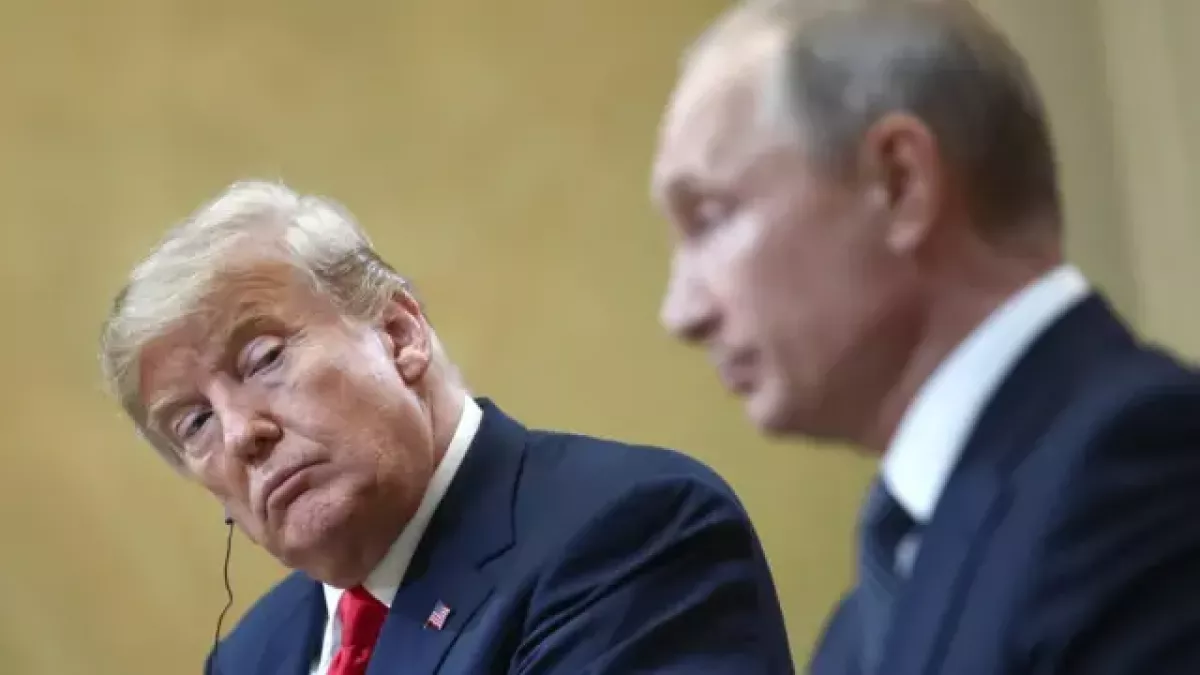War with diplomacy Trump sends ultimatum and envoy to Moscow
U.S. President Donald Trump has announced the possible visit of his Special Envoy for the Middle East, Steve Witkoff, to Russia on August 6 or 7. This event coincides with the deadline Trump gave Russia to reach a ceasefire agreement with Ukraine. According to him, if no deal is reached, the U.S. will impose new tariffs and “other measures,” marking the toughest ultimatum issued during Trump’s mediation efforts so far. Notably, for the first time since the start of the conflict in Ukraine, U.S.–Russia relations are once again teetering on the brink of escalation.
In response to Trump’s new ultimatum, Deputy Secretary of the Russian Security Council Dmitry Medvedev issued rather provocative statements, threatening the use of the "Perimeter" system—better known as the "Dead Hand"—an automated retaliatory nuclear strike mechanism inherited from the Soviet Union. In turn, Trump stated that he had ordered the deployment of two nuclear submarines to strategic locations and made it clear that the U.S. is also prepared for a nuclear scenario.
In the American side’s show of force, several notable elements emerge. First, this is the first time Washington has publicly and symmetrically responded to Moscow’s nuclear rhetoric. This could be interpreted either as a step toward escalation—or, conversely, as a signal to avoid it. In any case, if it’s not outright escalation, it certainly indicates readiness for it, which means Moscow may now be expected to tone down its nuclear posturing.
The second noteworthy point is that Trump has, for the first time, responded directly to a Russian official of lower rank than himself. This, of course, also reveals an element of political theatre. Trump—still unsuccessful in halting the war in Ukraine—is doing everything he can to embellish the ongoing mediation process, however long it may last, with dramatic and populist gestures. Also at play is Trump’s mounting frustration with Putin, who shows no intention of handing him the laurels of a peacemaker.

Putin’s recent conversation with Belarusian President Alexander Lukashenko in Valaam did little to signal any willingness for a ceasefire, despite his restrained and even serene demeanour. In response to Trump’s well-known remarks, Putin offered a pointed observation: "Disappointment stems from excessive expectations."
Still, on that same bench in Valaam, Putin—in the same soft-spoken tone—remarked that negotiations should not be conducted through ultimatums but rather via special channels, in a more trusting environment. This appeared to be a subtle message: not all is lost. Putin wants respect.
Now, it seems Trump is ready to meet him halfway, dispatching his special envoy to Moscow for the fifth time. Analysts of every stripe are now speculating: what is Steve Witkoff bringing with him—stick or carrot, a death sentence or an olive branch?
To begin answering that question, one must understand the fundamentals. Putin cannot end the war without achieving at least some of the publicly declared goals of the so-called “special military operation.” So far, none of those goals have been met. The United States—and even Europe—are not seeking a demonstrative military defeat for Russia, fearing the potential collapse of the country and ensuing chaos on a territory that possesses nuclear weapons. From this, one can infer that Western support for Ukraine will continue to serve the purpose of gradually degrading Russia’s military potential—but only to an extent that still allows Moscow to salvage part of its objectives, after which it may itself seek a truce.
Within this framework, Trump may take some bold step—one that does not fundamentally change the course of the war but is sufficient to create the illusion of such a shift, at least temporarily. For instance, he may authorise the transfer of a particular type of weapon to Ukraine—perhaps a powerful one, but in limited quantities—just enough to manufacture a moment of perceived momentum, until the next crisis arises. And of course, sanctions—what would U.S. policy be without them?
Against this backdrop, Witkoff’s visit appears more like a demonstration of continuity in the U.S. mediation initiative—an initiative that Trump, it seems, is still unwilling to abandon.








